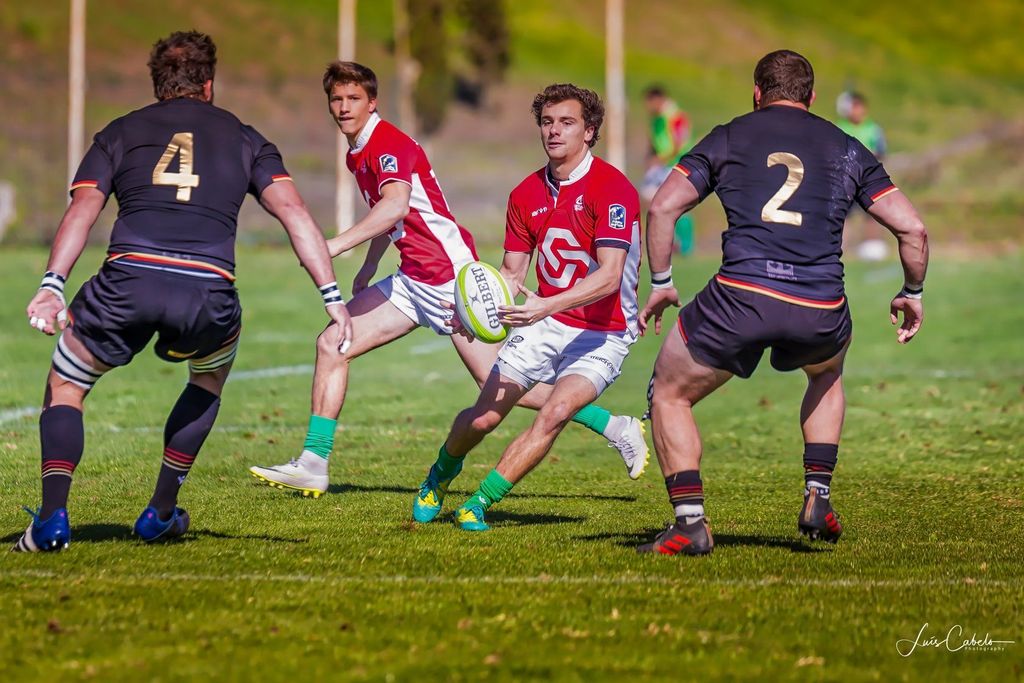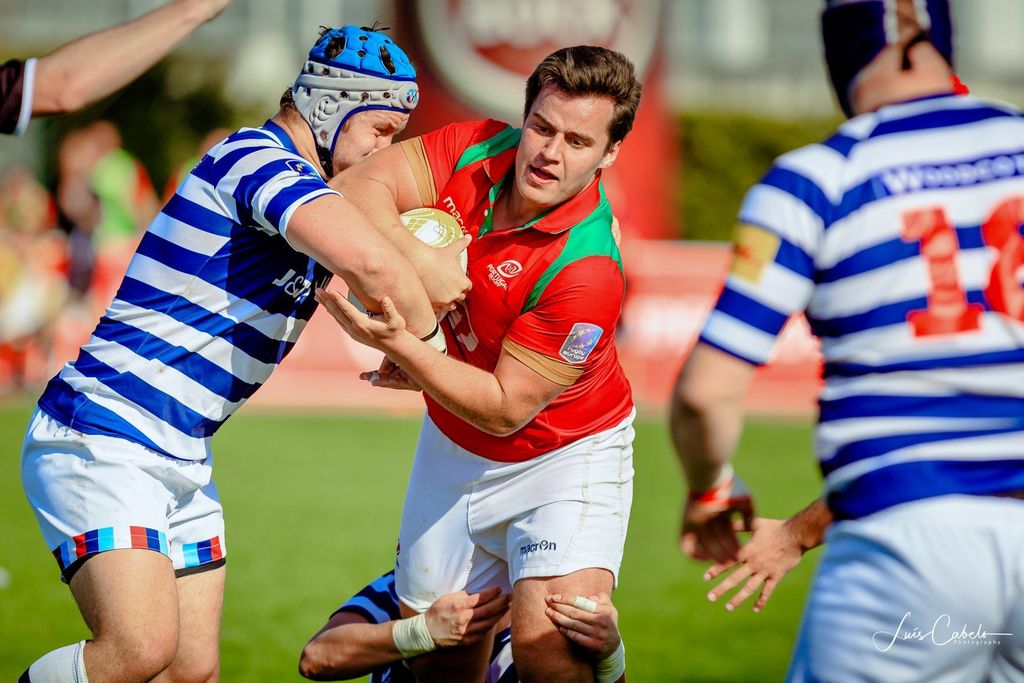Not much was expected of Portugal as they travelled to Montevideo for the World Rugby U20 Trophy 2017 given that two previous appearances at the tournament, in 2013 and 2015, had yielded only two wins as Junior Os Lobos finished sixth and seventh respectively.
But once in Uruguay, Portugal made light of pre-tournament predictions to beat the hosts, Hong Kong and Fiji – all by seven points or less – to top Pool B and book their place in the final.
A brand of rugby built on a strong forward pack and silky backline won plaudits, and although it was not enough to overcome Japan, who triumphed 14-3 in the showpiece match played in wet conditions, it has helped to lay solid foundations for the sport back home.
Last month, Portugal’s senior side secured a return to the Rugby Europe Championship in 2020 after the second-tier Trophy winners beat Germany, who finished bottom of this year's Championship, 37-32 in Frankfurt. In the squad that day were seven members of the class of 2017, including fly-half Jorge Abecasis, who kicked 17 points in the win, and hooker Nuno Mascarenhas.
“The Trophy allowed us to put to the test everything that we’d been working for since we were 14,” Abecasis (pictured right) said. “It’s almost like the ‘final exam’ for the team with the pressure and expectation that came from the outside and from within the group. It really gave character to the team and defined our identity.
“2017 was a very tough year. We had our regular season in the club and had the U20 European tournament mid-season. [We did] a lot of training and studying during that year.

Player pathway
“We trained throughout the summer and on the weekend, we would go to the Algarve together to rest. A lot of sacrifices but it was all worth it in the end.”
If the U20 Trophy 2017 was the squad’s litmus test then it was passed with flying colours. In total, 22 of the 26-man squad that made the journey to Montevideo two years ago have gone on to play test rugby.
A remarkable transition which highlights the importance of the U20 Trophy to nations like Portugal, who have seen 54 players graduate from the U20 Trophy to make their test debut – a figure bettered only by Uruguay with 64. 2008 champions Uruguay, though, have featured in nine of the 11 tournaments to date, more than double Portugal's four.
A number of players, Abecasis and Mascarenhas included, had in fact already been earmarked for international rugby and trained with the senior squad prior to departing for Uruguay. It made the transition from the U20 stage “a very natural process” and as they made the step up with their friends after “an amazing grounding” in the U20 Trophy.
“Playing and training with the same national squad since we were 13-14 allowed us to get to know each other better either on or off the field,” Abecasis said.
“While away from the pitch we are good friends and spend a lot of time together when we actually are playing we already know each other and have a solid routine.”
United cause
Mascarenhas (pictured left) added: “The first thing that pops into my mind when I recall the 2017 Trophy is the spirit of our team and our resilience throughout the entire competition. Of course, it also comes to mind the end of some matches and the rush of emotions, especially against Fiji – a team that Portugal had never beaten in any competition or age group in rugby.
“What I love about rugby is the feeling of friendship and loyalty that you get from and give to your team-mates, something that is not easy to explain to those outside the game.”
Portugal’s success two years ago was not a one-off. Junior Os Lobos finished third in Romania last year and are back in South America now for this month’s U20 Trophy in Brazil with their sights set firmly on qualification for the World Rugby U20 Championship in 2020.
Both Abecasis and current U20 head coach Luis Pissarra attribute the upturn in results to work done behind the scenes at the Portuguese Rugby Federation (FPR) to foster a winning environment.
“Each group that has worked with us has been special, with its particularities and characteristics, which allows different adaptations and ways of acting in each year or generation,” Pissarra said.
“The greatest weapon of force that these groups have had is their union, as a group and as a family, and this characteristic was, without a doubt, the main reason and the secret behind us winning the Rugby Europe U20 Championship.”
Portugal's year?

Portugal have been drawn in Pool B in Brazil and Canada, Hong Kong and Tonga stand between Junior Os Lobos and a place in another final.
On their hopes of promotion, Pissarra added: “That’s the goal and the thing that motivates us. We have been (knocking) ‘at the door’ in the last two years and we are determined to achieve that this year.”
Mascarenhas is certainly hopeful that is the case because he has big dreams for Portugal in the years to come.
“I really think so. I've played with most of them, with and against, and I can say that they are really talented and are determined to prove themselves on the big stage. I have all my faith in them and on our coaches and I also have the feeling that this might be our year!
“My main ambition is to put Portuguese rugby where I think it should be, to being competitive with bigger and tougher teams and of course to play in the World Cup.”
And ahead of Portugal’s opening match against Hong Kong on Tuesday, Abecasis had some words of encouragement for the class of 2019: “Go out there, make us proud and especially enjoy every minute and every game!”
If they do that then they might just end up going one better than the class of 2017, and perhaps even lay the foundations for a second Rugby World Cup appearance.
Photos: Luís Cabelo and Manuel de Marcarenhas Gaivão





